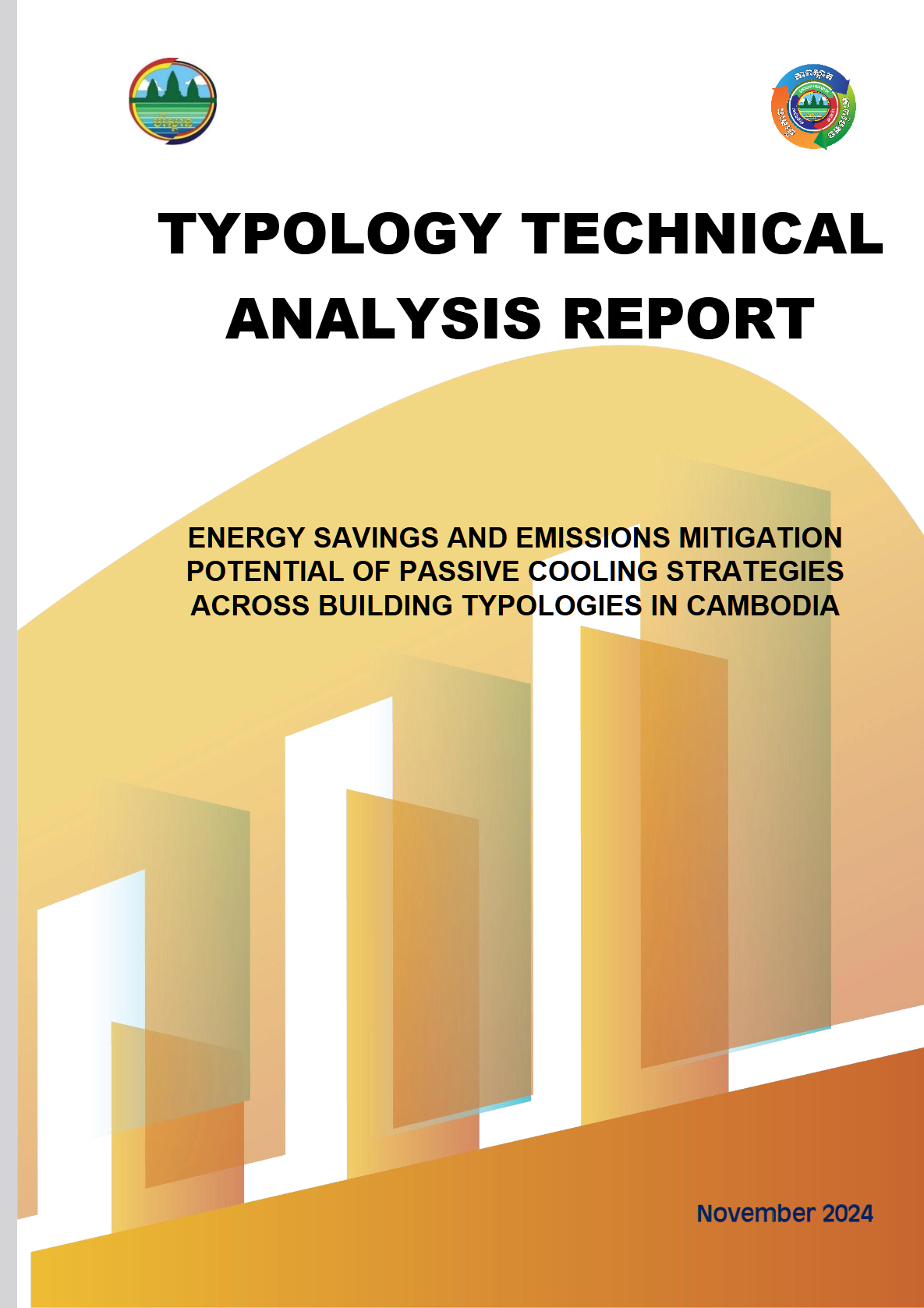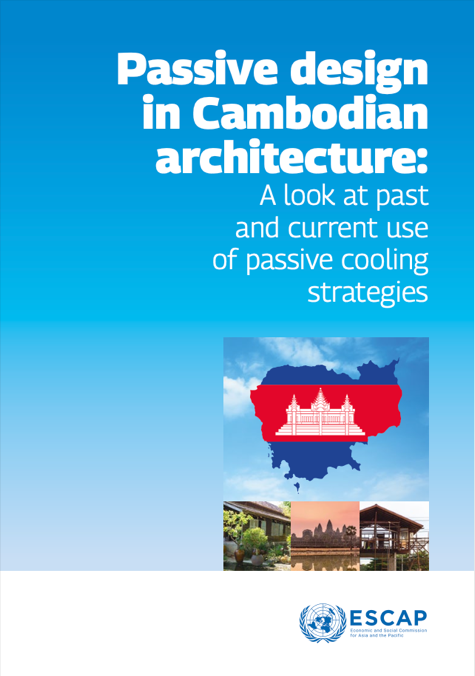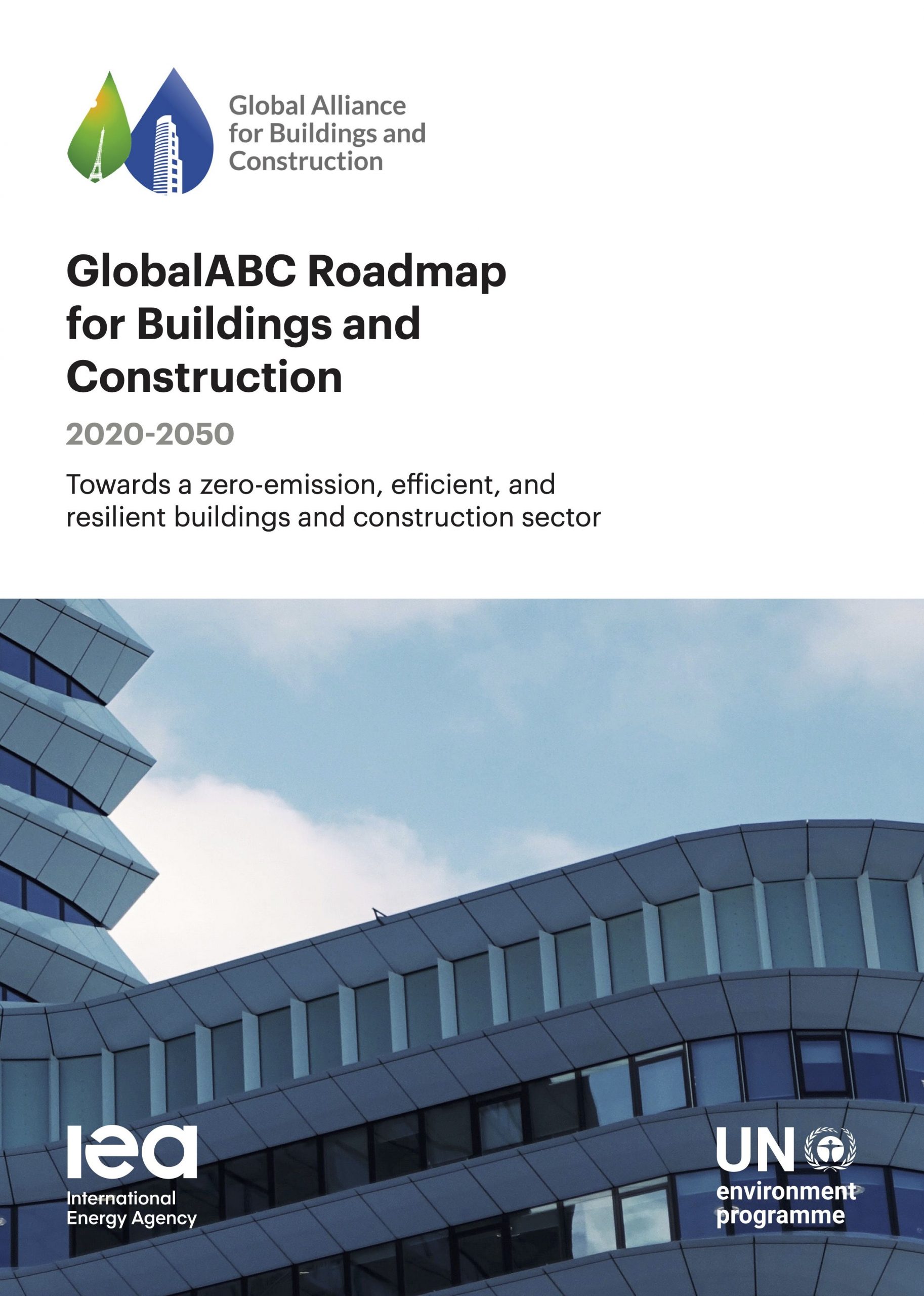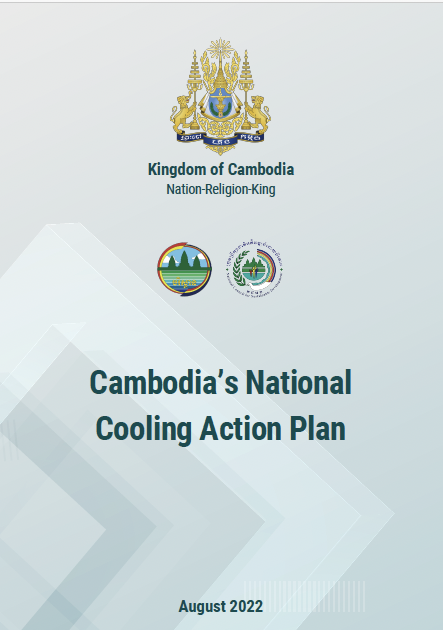
Resources

Typology Technical Analysis Report
Examining the variety in building designs and types helps understand how heat and mass flow in and out of buildings. This understanding is key to evaluating the thermal performance of buildings in Cambodia and the effectiveness of different passive cooling strategies (PCS). The report focuses on how different building types are designed and built, and how well individual and combined PCS work in these buildings, especially in terms of energy savings and reducing emissions. The findings will help create guidelines for building design and construction professionals in Cambodia.
Click here to download

Passive Design in Cambodian architecture
The study explores Cambodia’s unique local context, culture, and history to find ways to strengthen sustainable architecture in the country. It focuses on the traditional knowledge of designing for Cambodia’s hot and humid climate and how local architecture has responded to this over time. The study aims to combine this rich traditional knowledge with modern scientific methods to reintroduce these principles into contemporary Cambodian architecture.
Click here to download

GlobalABC Roadmap for Building and Construction
The Global Roadmap for Buildings and Construction outlines targets and timelines to achieve zero-emission, efficient, and resilient buildings from 2020 to 2050. It covers eight themes: urban planning, new buildings, existing buildings, building operations, appliances and systems, materials, resilience, and clean energy. For each area, it identifies priority actions related to policy and technology. The roadmap was developed in partnership with Global Alliance for Buildings and Construction (GlobalABC) and the UN Environment Programme.
Click here to download

Cambodia’s National Cooling Action Plan
In Cambodia, developing a National Cooling Action Plan (NCAP) is an important step in mitigating the energy demand and greenhouse gas emissions form the cooling sector, while supporting increased access to affordable cooling in the country. The NCAP methodology aims to increase the capacity of countries to achieve energy consumption and greenhouse gas emissions reduction targets under nationally determined contributions to the Paris Agreement, the Kigali Amendment to the Montreal Protocol on reducing the production and consumption of hydrofluorocarbons (HFC), and the Sustainable Development Goals.
Click here to download
